Teaching your children how to speak French can open doors to a world of opportunities and enrich their cognitive abilities. In this comprehensive guide, we’ll explore the best strategies, resources, and tips to make French classes for kids an enjoyable and educational adventure.
Table of Contents
The Importance of Learning a Second Language
Before we dive into the specifics of teaching French to kids, it’s essential to understand why learning a second language holds significant value for children.
In today’s increasingly interconnected world, being bilingual or multilingual is an asset that offers a multitude of benefits. Here, we’ll explore why it’s valuable for kids to learn a second language and how this skill can shape their lives.
Choosing the Right Approach
Selecting the right approach is crucial when teaching kids French. Let’s take a deeper look at the methods mentioned:
Language Apps: Language-learning apps designed for kids often offer engaging and interactive lessons. Look for apps that incorporate features like quizzes, games, and colorful visuals to make learning fun. Many of these apps also provide progress tracking, allowing you to monitor your child’s language development.
Language Classes: Enrolling your child in a language class can provide structured learning and valuable social interactions. Look for classes that are age-appropriate and emphasize interactive activities. Language classes can also introduce cultural elements, helping kids understand the context of the language.
Immersive Experiences: Immersion in a French-speaking environment can be highly effective but may require planning. If travel to French-speaking regions isn’t feasible, consider language immersion programs in your local area. These programs often include language camps or classes where kids can practice French in a supportive setting. Additionally, connecting with French-speaking friends or relatives can create opportunities for real-world conversations.
Creating a Language-Rich Environment
To create a language-rich environment, it’s essential to integrate French seamlessly into your child’s daily life. Here’s a closer look at some practical strategies:
Labeling: Labeling common objects around the house with their French names is an effective way to reinforce vocabulary. Use removable labels to rotate items regularly, introducing new words as your child progresses.
Everyday Phrases: Incorporating French phrases into daily conversations can normalize the language. Start with simple greetings like “Bonjour” (hello) and “Merci” (thank you). Gradually introduce more phrases, such as those related to mealtime or common activities.
Media and Entertainment: Introducing French music, movies, and cartoons can be both educational and entertaining. Opt for age-appropriate content and consider using subtitles to aid comprehension. Discuss the content with your child to enhance language understanding.
Reading: Reading French books and bedtime stories can foster a love for reading and language. Begin with picture books featuring simple French words and gradually transition to more complex stories. Encourage your child to ask questions and express their thoughts in French.
These strategies can help you establish a language-rich environment that supports your child’s language development in a natural and enjoyable way.
Engaging Resources for Kids
Keeping your child engaged and motivated is vital for successful language learning. Here are some additional resources tailored to children:
French Children’s Books: Explore age-appropriate French books with captivating illustrations and simple narratives. These books are designed to pique your child’s interest while gradually expanding their vocabulary.
Educational Games: Look for board games and online games that incorporate language learning elements. Games that encourage interaction and problem-solving can make learning enjoyable.
Language Learning Apps: Choose language learning apps specifically designed for kids. These apps often use gamification techniques to engage young learners and make language acquisition fun.
Effective Tips for Language Learning
Here are practical tips for making the language learning process enjoyable and effective for your children:
Set Realistic Goals: Establish achievable language-learning goals and celebrate your child’s progress along the way.
Daily Practice: Encourage daily language practice, but keep it fun and stress-free. Short, regular sessions are often more effective than longer, infrequent ones.
Positive Reinforcement: Use praise and small rewards to motivate your child. Positive reinforcement can boost their confidence and enthusiasm for learning.
Family Involvement: Engage in language activities together as a family. Learning becomes a shared experience, and your child can see that language learning is valued by the entire family.
Incorporating French into Daily Activities
To keep the language learning process engaging and consistent, here are more ideas on how to integrate French into your child’s daily activities:
Cooking: Cooking French recipes together is not only fun but also educational. Discussing ingredients and cooking terms in French allows your child to learn vocabulary in a practical context. It’s an opportunity for hands-on learning and cultural exploration.
Movie Nights: Themed French movie nights can be a delightful family activity. Select family-friendly French films with subtitles to ensure understanding. After the movie, engage in discussions about the storyline and characters in French.
Explore Cultural Events: Participating in French cultural events, such as festivals, exhibitions, or joining cultural clubs, can provide immersive experiences. These events offer exposure to French culture, arts, and traditions, enhancing your child’s language learning journey.
Avoiding Common Challenges
Teaching your kids French may come with some challenges. Here’s how to tackle common issues:
Resistance to Learning: If your child resists learning, make it a game or a bonding activity. Use playfulness to engage their interest.
Lack of Progress: If progress seems slow, remain patient and persistent. Language acquisition is a gradual process, and every step forward is an achievement.
Maintaining Interest: To sustain your child’s interest, introduce new topics and activities regularly. Change the focus from time to time to keep the learning experience fresh.
Conclusion
In conclusion, teaching your kids how to speak French is a rewarding journey that offers numerous cognitive, cultural, and practical benefits. By choosing the right approach, creating a language-rich environment, utilizing engaging resources, and following effective tips, you can make the process enjoyable and educational for your little ones.
Remember, consistency and patience are key. Celebrate their achievements, no matter how small, and nurture their love for learning. As you embark on this adventure together, you’re not only teaching a language; you’re opening doors to a world of opportunities and fostering a lifelong passion for exploration.
Begin your French language adventure today and watch your children speak French like pros!In this comprehensive guide, we’ll explore the best strategies, resources, and tips to make French classes for kids an enjoyable and educational adventure.





